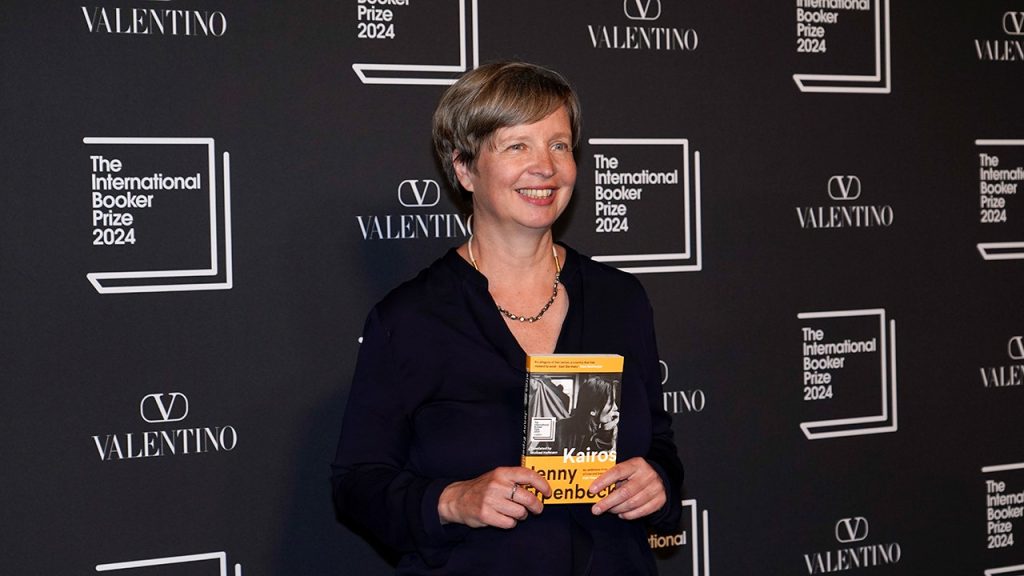German author Jenny Erpenbeck and translator Michael Hofmann won the International Booker Prize for their novel “Kairos,” which tells the story of a complex love affair during the final years of East Germany. The novel emerged victorious from a pool of 149 submissions and beat five other finalists to clinch the prestigious award. The International Booker Prize recognizes fiction from around the world that has been translated into English and published in the U.K. or Ireland. The 50,000-pound prize money is divided between the author and translator, highlighting the importance of translation in bringing global voices to English-speaking audiences.
Chair of the judging panel, Canadian broadcaster Eleanor Wachtel, praised Erpenbeck’s novel for its evocative portrayal of a tumultuous love affair set against the backdrop of the German Democratic Republic’s collapse in the lead up to the fall of the Berlin Wall. Wachtel described the novel as a richly textured exploration of personal and national transformations, drawing parallels between the unraveling of the characters’ relationship and the demise of the GDR itself. Erpenbeck, who was born and raised in East Berlin, infuses the novel with optimism and trust that ultimately gives way to disillusionment and chaos, mirroring the trajectory of East Germany’s history.
Wachtel commended translator Michael Hofmann for his skill in capturing the eloquence and eccentricities of Erpenbeck’s prose, ensuring that the nuances and complexities of the original text were preserved in the English translation. Hofmann’s translation was celebrated for its ability to convey the emotional depth and historical resonance of the novel, allowing English-speaking readers to experience the narrative in all its richness. The International Booker Prize, presented annually alongside the Booker Prize for English-language fiction, aims to elevate the profile of translated fiction and acknowledge the vital role of literary translators in bringing diverse voices and stories to a wider audience.
Last year’s winner, “Time Shelter” by Bulgarian writer Georgi Gospodinov, also delved into the legacy of communism in Europe, underscoring the thematic depth and diversity of the International Booker Prize winners. The award serves as a platform for celebrating literature from around the world and recognizing the underappreciated work of translators who bridge linguistic and cultural divides through their craft. Hofmann’s achievement as the first male translator to win the International Booker Prize since its inception in 2016 highlights the importance of promoting diversity and inclusivity in the world of literature and translation.
With its exploration of personal relationships intertwined with the tumultuous political landscape of East Germany in its final days, “Kairos” stands as a testament to the enduring power of storytelling to illuminate historical moments and complex emotions. Through Erpenbeck’s masterful prose and Hofmann’s deft translation, readers are invited to delve into a world marked by hope, betrayal, and transformation, shedding light on the human experience amidst the backdrop of sweeping political change. The International Booker Prize continues to champion international fiction and translation, fostering a deeper appreciation for the richness and diversity of global literary voices in the English-speaking world.















